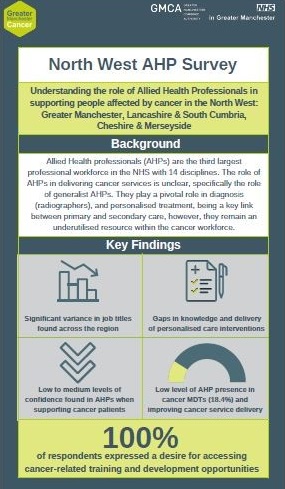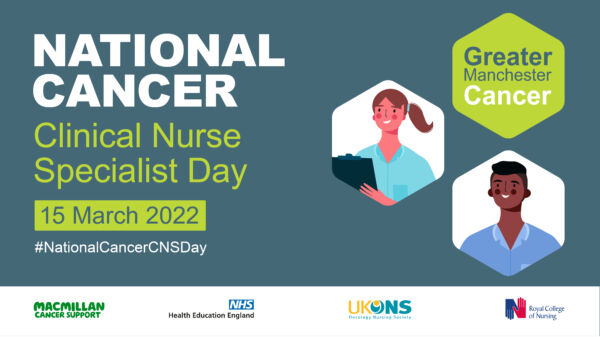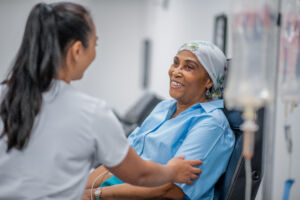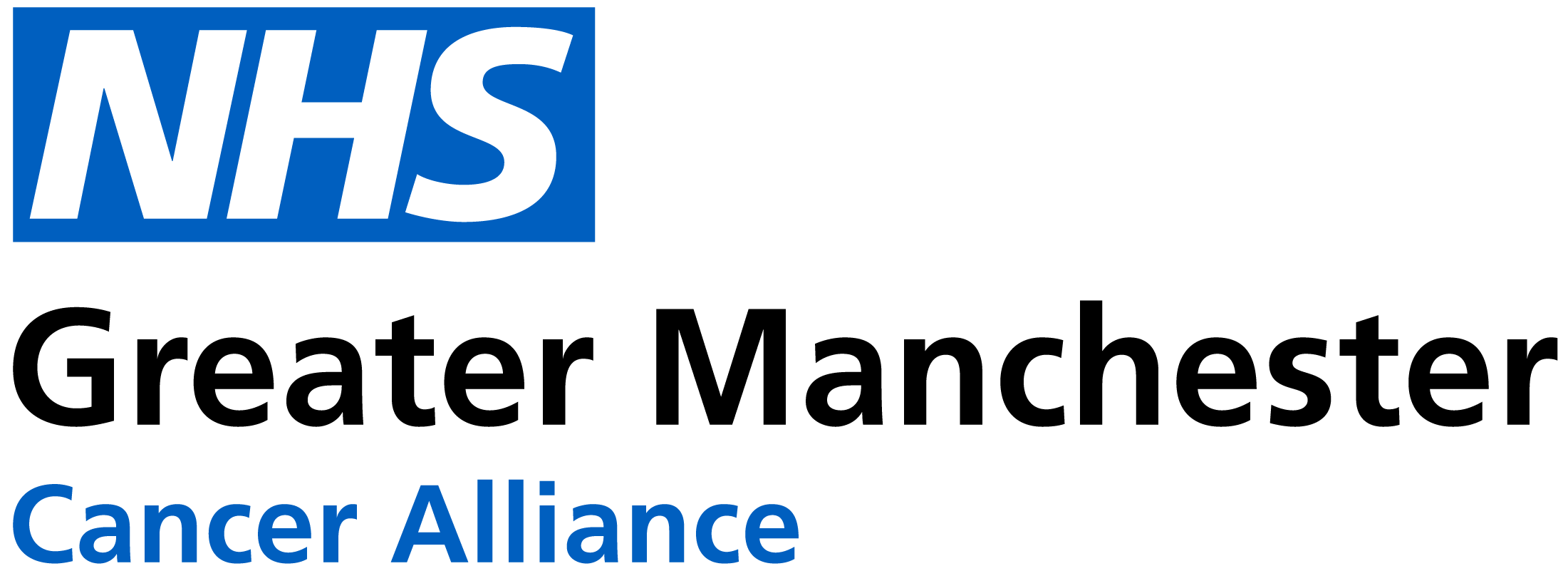Personalised Care Workforce Developments
Personalised care for cancer patients is one of the core programmes of work for the alliance and therefore a priority area for the workforce and education team. We want to ensure the cancer workforce have the confidence, knowledge and skills to deliver personalised care throughout the whole of the patient pathway in line with the long term plan ambitions. The following programmes of work are currently in progress:
Upskilling AHPs in cancer related topics including personalised care
The North West AHP cancer survey was devised with the purpose of having a better understanding of the role AHPs have in supporting people affected by cancer. This included understanding the offer specialist and generalist AHPs give this patient cohort, confidence levels and training needs.
After analysing the results, we identified gaps in cancer related training available for Specialist and Generalist AHPs (see infographic). We shared the findings far and wide and as a result have secured £1.2 million to develop and deliver cancer training to upskill 1200 generalist AHPs working in the community. This will go through a procurement exercise and so if any training providers / organisations would like further information please get in contact.

Providing seamless personalised care for cancer patients
In response to the long term plan ambition to deliver more person-centred care to all, Greater Manchester Cancer successfully piloted the role of the Cancer Support Worker (CSW) in secondary care.
With 100+ CSWs embedded in cancer teams across GM, this new role supports delivery of elements of the NHS Comprehensive Model of Personalised Care for cancer patients, specifically personalised care and support planning and supported self-management. However, in order to truly deliver a comprehensive model and provide seamless personalised care to patients, there needs to be greater links between primary care / community services and secondary care, a concept that is very much supported by patients.
The time between a referral being made and receiving the first appointment is a difficult and anxiety inducing time for patients, and so having a dedicated role to support patients during this time will be an invaluable resource. The increasing number of cancer survivors has led to an increase in the number of people requiring follow-up care, monitoring and management. Therefore primary care has an important role in not only supporting early diagnosis and effective referral processes and pathways but also supporting people to live well with and beyond cancer.
All of the above will require additional capacity to implement for all patients and so this project proposes to pilot the role of the CSW working across primary and secondary care. They will sit within primary care networks and a tailored role will be developed in line with the PCN’s needs.
This project will provide a model for other life limiting conditions so that all patients with life limiting conditions have access to personalised care. The pilot will support future workforce models and explore the possibility of support workers working across life limiting conditions, where additional psycho-social care and support may be less available.
We are piloting 9 Cancer Care Coordinators in Primary Care across Bury, Oldham, Salford, Stockport, Tameside and Wigan over an 18 month period to see the impacts of the role in the delivery of seamless personalised care.
Raising the profile of CNS workforce – key part of the workforce delivering personalised care

As part of the Workforce and Education strategy, the CNS Workforce Subgroup were exploring ways to raise the profile of the CNS across Greater Manchester. As a group, it was agreed to film videos and launch a social media campaign in a bid to myth-bust preconceptions around working in a cancer setting and showcase the CNS role.
The hope is that the campaign will address the issues surrounding ‘recruitment and retention’ into the CNS role after being highlighted as a priority area in the NHS Planning Guidance. After conversations with other alliances, it became apparent we were all trying to do something similar (albeit with a slight shift focus dependent on workforce needs).
The concept of a National Cancer CNS Day was floated and we are pleased to say this GM Cancer initiative is now being supported by HEE, Macmillan, RCN and UKONS. National Cancer CNS Day will take place on Tuesday 15 March with all 21 cancer alliances across England committed to engaging in activities on the day.
National CSW career and education programme – to enhance the delivery of personalised care interventions for cancer patients
Health Education England (HEE) have commissioned the development of a Training, Education and Career Framework for Cancer Support Workers. This project has been funded through HEE to support the positive contribution of the Cancer Support Workforce and invest in their education and career development. Greater Manchester Cancer Alliance are working in conjunction with other North West Cancer Alliances to help shape and develop this offering
The Cancer Support Worker roles have been recognised nationally as best practice in reaching innovative solutions. Unlike the Assistant Practitioner, Cancer Support Workers remain unregistered and unregulated, but the impact, Cancer Support Workers have on patient experience cannot be valued highly enough.
To support this workforce in delivering high-quality care, a clear framework will; drive up quality, remove unwarranted variation around roles and responsibilities, and prepare those who want to progress for their next steps on the career ladder.
National evidence highlights that effective deployment of Cancer Support Workers in Personalised Care and Personalised Stratified Follow Up frees the time of Cancer Nurse Specialists (CNS) and supports patient experience through personalised care.
Personalised Care for Cancer workshop 22nd June
The Personalised Care for Cancer Workshop was hosted by The Greater Manchester (GM) Cancer Alliance to shape the future of personalised care across GM and East Cheshire with a wide range of talks including the importance of highlighting opportunities for change and innovative ideas to influence the future of the personalised care work programme. The session featured workshop-style discussions, opportunities to feedback ideas and networking. The workshop aimed to go above and beyond the long-term plan ambitions and GM Cancer utilised the network of healthcare professionals and expertise to influence how we can shape personalised care.
MECC for Cancer Pathways
We are looking for Lead Trainers and Trainers to come on board to deliver a second cohort of training here in Greater Manchester for up to 300 members of our workforce who have a touchpoint with a person affected by cancer. This collaboration with the Royal Society for Public Health (RSPH) has adapted the MECC Model to a MECC for Cancer Model in order to respond quickly to the development needs of the workforce through high quality and evidence based training. This MECC for Cancer Training allows for large numbers of frontline staff to feel confident in responding appropriately to expressions of low-level distress and prevents cancer patients presenting later with chronic unmet psychological need.
We need Lead Trainers and Trainers to facilitate a Train the Trainer concept – this involves a 2-day upskilling training session delivered by the Royal Society for Public Health (RSPH). All training materials will be provided, along with centralised administrative support. This is a fantastic opportunity for professional development and benefits include a training grant (this can be for the organisation if delivered in working hours or specifically for individuals if beyond role scope), RSPH membership for one year, ongoing subject related professional development opportunities and access to a regional network trainer hub.

 If you’d like to know more about any of the work detailed above please get in touch with Molly Pipping, Cancer Academy Programme Lead.
If you’d like to know more about any of the work detailed above please get in touch with Molly Pipping, Cancer Academy Programme Lead.

